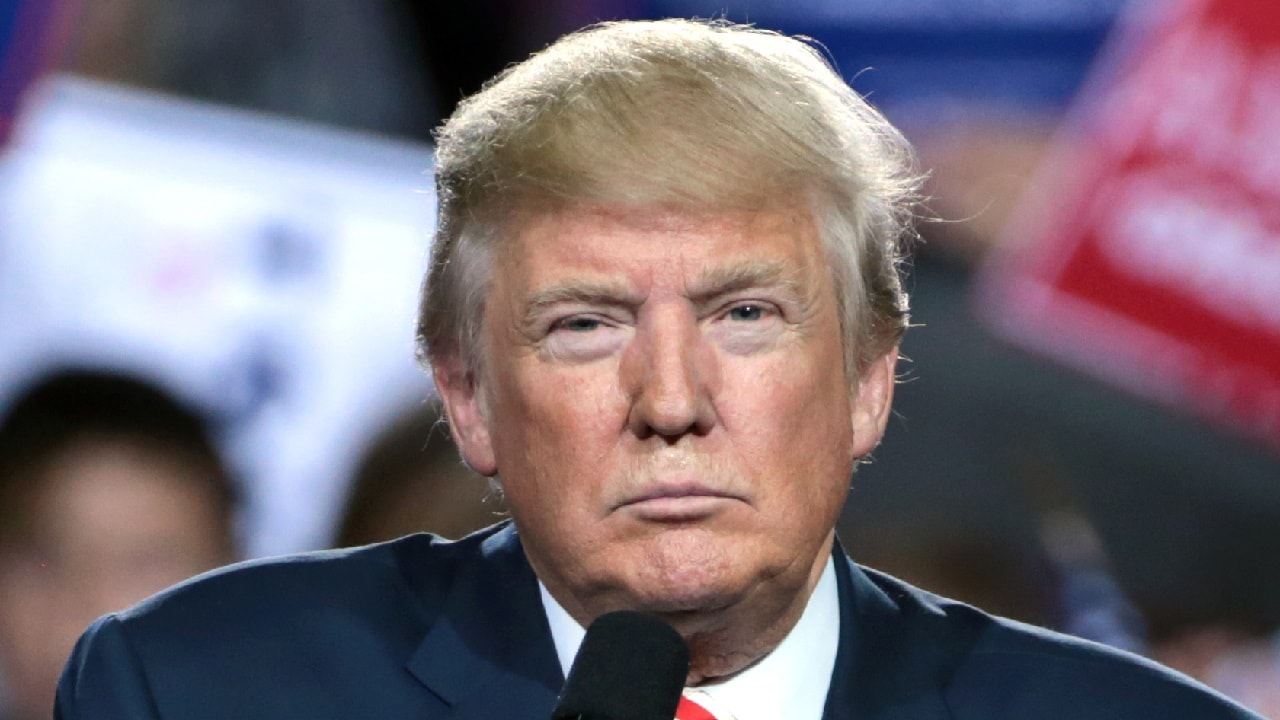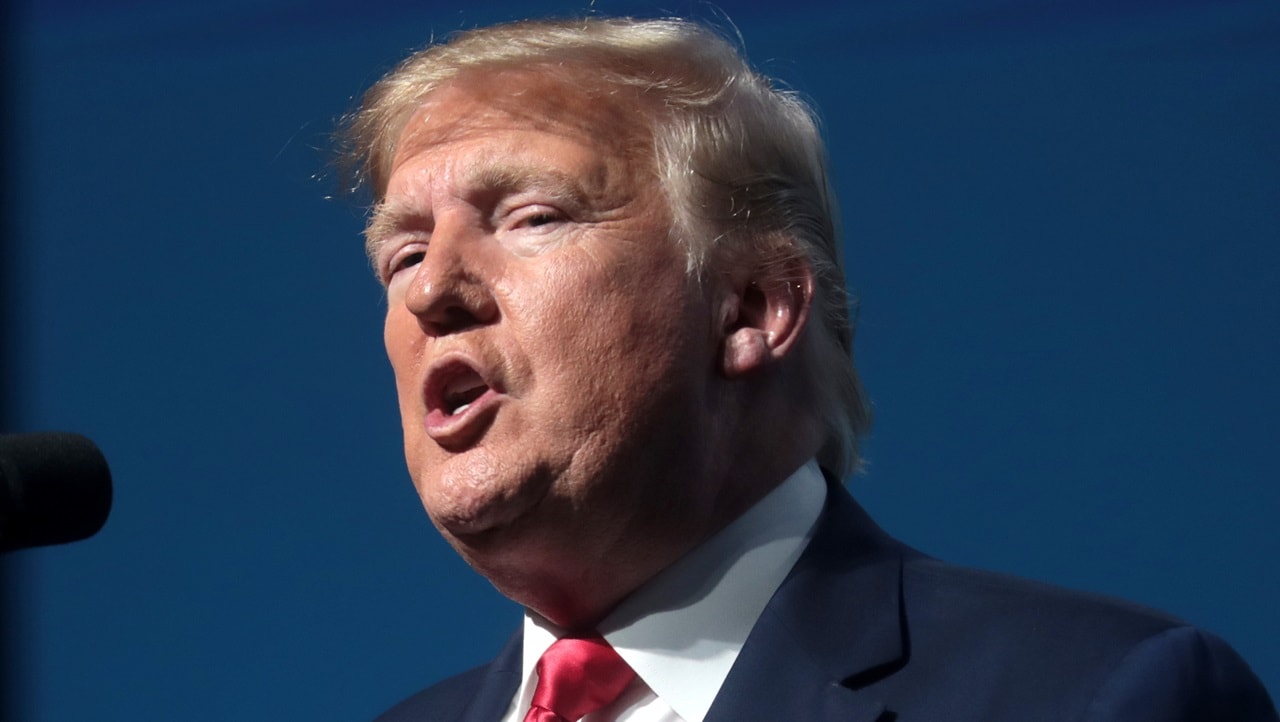President Donald Trump’s latest round of tariffs is not just another negotiating tactic. It is not part of some grand strategy to pressure trading partners into better deals. It is something far more dangerous: a declaration of economic war on free markets themselves, driven by his long-standing commitment to autarky. Trump does not merely want to reduce America’s dependence on foreign goods—he wants to sever it entirely.
He believes, wrongly, that everything the United States needs can and should be produced domestically, no matter the cost. This is not the pragmatism of a shrewd dealmaker. It is the economic nationalism of a man who fundamentally misunderstands how modern economies function.
The latest tariffs—10 percent on Chinese goods, with the 25 percent tariffs on imports from Canada and Mexico paused for a month but likely to be imposed in the near future—will have profound consequences for American consumers, businesses, and international alliances. While his supporters may cheer what they see as a bold assertion of national sovereignty, the reality is far less flattering. Tariffs are taxes on American consumers, pure and simple. When Trump slaps a 25 percent tariff on steel and aluminum, it is not foreign producers who foot the bill. It is American manufacturers who must now pay more for raw materials, passing those costs onto consumers.
It is workers in industries that rely on supply chains spanning multiple countries who will see their jobs disappear as their employers struggle to stay competitive. It is small businesses that will bear the brunt of higher costs, unable to absorb the hit the way large corporations can. It is every American who shops for groceries, clothes, cars, and household goods who will see prices rise across the board.
The effects of these tariffs will not be contained within the borders of the United States. As costs escalate, companies will be forced to cut back on hiring, investment, and expansion. This will ripple across industries, reducing economic growth and stifling innovation. More importantly, these tariffs will accelerate inflation, which has already been a major concern for consumers and policymakers alike. Rising prices for goods will not just affect discretionary spending—they will impact necessities, making everyday life more expensive for millions of Americans who are already struggling to make ends meet.
Some might argue that these tariffs are just a means to an end—that Trump is using them to force Canada, Mexico, and China into better trade deals. But this argument does not hold water. Trump is not looking for better trade deals. He is looking to dismantle the entire system of open trade. He has repeatedly stated his belief that the United States should not be importing anything at all, that it should be entirely self-sufficient. This is not a negotiating position.
It is an ideological crusade. Trump envisions an America where every product, from microchips to sneakers, is made domestically. He believes this will bring jobs back, restore American manufacturing, and end dependence on foreign powers. But this vision is not just unrealistic—it is a recipe for economic disaster.
The United States cannot produce everything it consumes at a reasonable cost. No country can. The entire premise of modern trade is that different nations specialize in what they do best, allowing for lower prices, greater efficiency, and technological innovation. By rejecting this, Trump is condemning the United States to economic stagnation. If he gets his way, Americans will not be paying a little more for certain goods. They will be paying vastly higher prices for almost everything. The supply chains that power American industry will collapse. Foreign investment will dry up as companies look elsewhere for stability.
Trade wars will escalate, as other nations retaliate with tariffs of their own, choking off American exports. This is not hypothetical. It is already happening. Markets have reacted with alarm, with significant downturns following Trump’s tariff announcements. American farmers, who rely on exports to stay afloat, have already seen demand for their products plummet due to retaliatory tariffs. Automakers are warning of massive job losses as supply chains are disrupted. And yet, Trump presses on, seemingly indifferent to the damage he is inflicting.
His supporters will argue that these sacrifices are necessary for national security, that America must not be dependent on foreign powers for essential goods. This argument, too, is deeply flawed. Economic security and national security are not the same thing. The idea that the United States is somehow at risk because it imports certain products is absurd. America is not vulnerable because it imports steel from Canada or microchips from Taiwan.
It is vulnerable because its economy is being deliberately sabotaged by a president who does not understand economics. The true risk to national security is an America that is economically weakened, diplomatically isolated, and strategically outmaneuvered by adversaries who are more than happy to fill the void left by its retreat.
Meanwhile, America’s closest allies are being treated as economic enemies. Canada and Mexico have long been essential trade partners, bound together with the United States through agreements like NAFTA and the USMCA. Now, they are being targeted as if they were adversaries. The message this sends is clear: the United States cannot be trusted as a reliable economic partner. And the consequences of this will extend far beyond tariffs. Nations that once looked to the United States for leadership in trade and economic policy are now turning elsewhere. China, the European Union, and even smaller economies are forging new trade alliances that exclude the United States. These are not temporary shifts. They are long-term realignments that will leave America increasingly isolated.
Trump’s tariff policies are not a demonstration of strength. They are an admission of weakness. A confident nation does not fear competition. A strong economy does not need protectionist barriers to survive. Trump, however, does not believe in American strength in the traditional sense. He does not believe that American businesses can compete on a level playing field. Instead, he believes they must be shielded from foreign competition, coddled with tariffs, and propped up by government intervention.
This is not capitalism. It is economic nationalism bordering on mercantilism, a 17th-century mindset in a 21st-century world. And it is doomed to fail.

Donald Trump speaking with supporters at a campaign rally at the Prescott Valley Event Center in Prescott Valley, Arizona.
In the end, Trump’s pursuit of autarky will not lead to American prosperity. It will lead to economic decline, diplomatic isolation, and strategic weakness. The question is not whether these tariffs will backfire—they already have.
The question is whether there will be enough political will to reverse course before the damage becomes irreversible. For now, Trump may be happy. But for the millions of Americans paying more for everyday goods, for the businesses struggling to survive, for the farmers watching their export markets disappear, and for the allies questioning their relationship with the United States, there is little reason for optimism. The longer Trump pursues his fantasy of a self-sufficient America, the more painful the reality check will be when that fantasy collapses.
About the Author: Dr. Andrew Latham
Andrew Latham is a non-resident fellow at Defense Priorities and a professor of international relations and political theory at Macalester College in Saint Paul, MN. Andrew is now a Contributing Editor to 19FortyFive. You can follow him on X: @aakatham.

